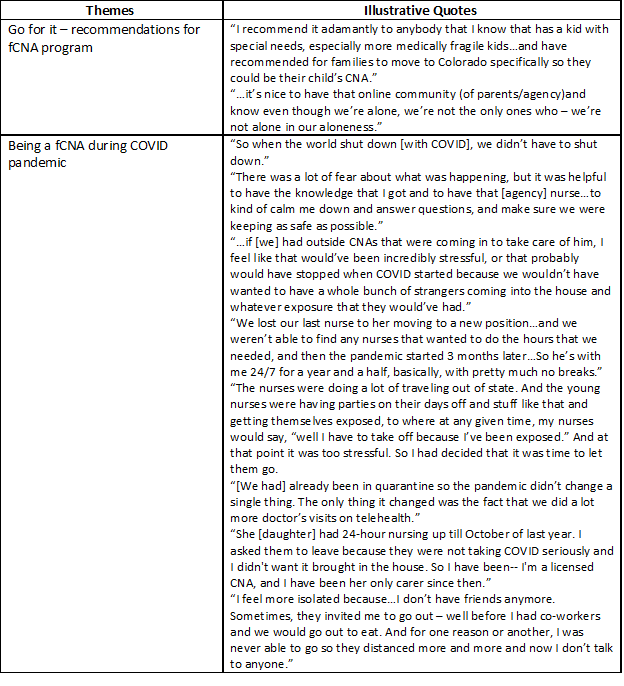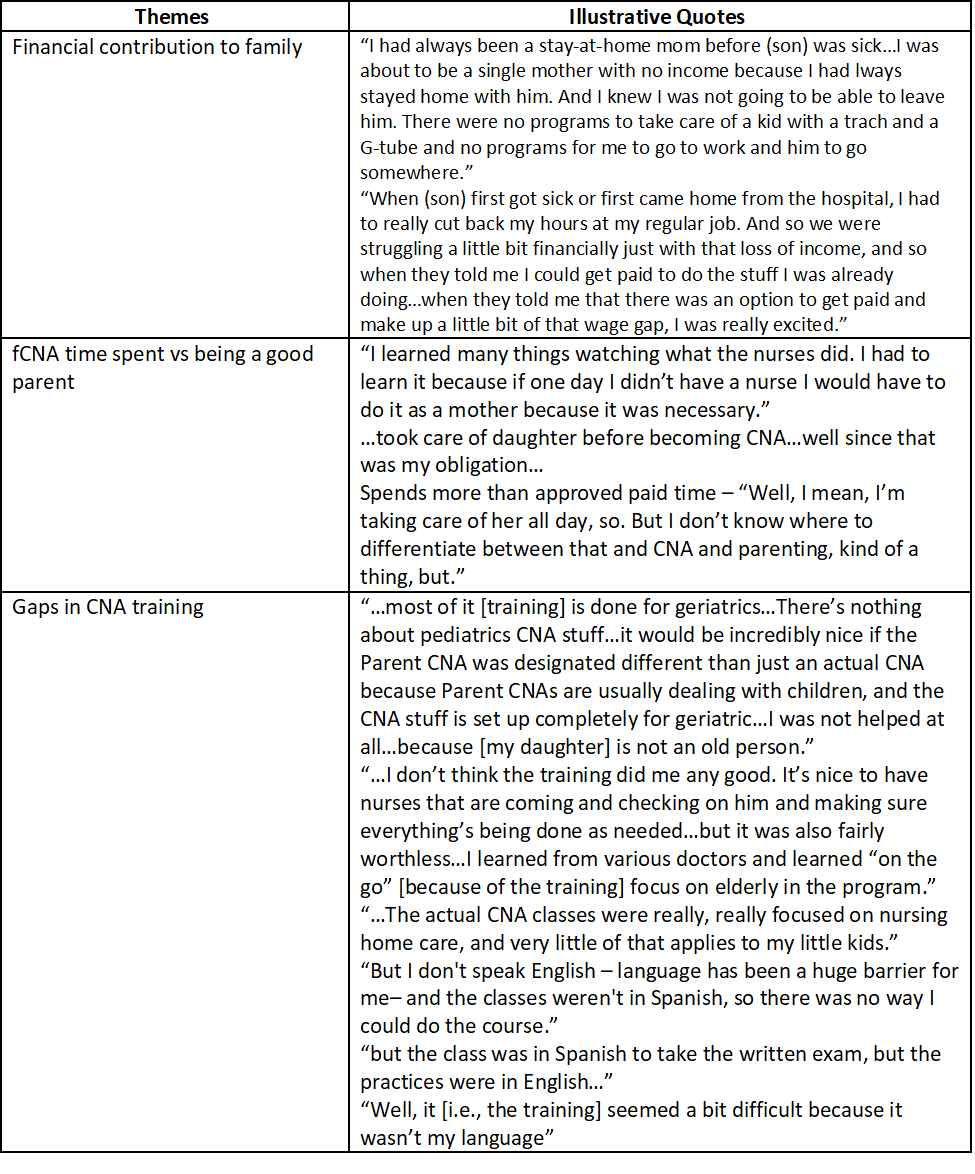Children with Chronic Conditions
Category: Abstract Submission
Children with Chronic Conditions III
600 - Paid Family Caregiving for Medically Complex Children During the Covid-19 Pandemic
Monday, April 25, 2022
3:30 PM - 6:00 PM US MT
Poster Number: 600
Publication Number: 600.403
Publication Number: 600.403
Mark Brittan, Children's Hospital Colorado, Aurora, CO, United States; Catia Chavez, University of Colorado School of Medicine, aurora, CO, United States; Christy S. Blakely, Family Voices CO, Littleton, CO, United States; Brooke Dorsey Holliman, University of Colorado Anschutz Medical School, Aurora, CO, United States; Jeannie Zuk, University of Colorado School of Medicine, Aurora, CO, United States
- MB
Mark Brittan, MD, MPH
Associate Professor
University of Colorado
Aurora, Colorado, United States
Presenting Author(s)
Background: Family caregivers of children with medical complexity (CMC) face fragmented care coordination, unreliable home health services, and financial strain due to job loss - problems which have been further exacerbated by the Covid-19 pandemic.
Objective: To examine a health care model that may address these problems, we interviewed parent recipients of Colorado’s paid family Certified Nursing Assistant (fCNA) program during the pandemic.
Design/Methods: We conducted semi-structured interviews of 14 English- and Spanish-speaking parents of children ≤18 years of age in the fCNA program between 1/2021 and 9/2021. Parents were recruited through a grassroots organization run by parents of children with special healthcare needs (Family Voices Colorado) and a network of Hispanic/Latino parents formed to provide support for people with disabilities and their families (El Grupo Vida). Semi-structured interviews were conducted by phone and explored parents’ global perceptions of the program with a focus on providing care during the Covid-19 pandemic. Qualitative content analysis methods were used to elicit themes that characterize the program’s benefits and challenges.
Results: Interviewed parents had a median age of 47 years of age and were mostly female (86%) and English speaking (71%). They described their children as having multiple chronic conditions such as cerebral palsy, developmental delays, metabolic diseases, autism, chronic heart and lung diseases, and seizures with frequent reliance on medical technologies such as CPAP, BIPAP, feeding pumps, and adaptive equipment. Parents provided a glimpse of what it means to care for CMC and universally praised the fCNA program. They highlighted its financial benefits and means to reliable and high-quality home CNA care. Primary gaps identified pertained to the training which focuses on elderly and nursing home care and lacks consistent Spanish language learning and testing materials. While the Covid-19 pandemic brought on more isolation for some families, the program was perceived to have added benefits during the pandemic by alleviating home health workforce shortages, protecting the child from Covid-19 exposures, and providing partnership with home health agency nurse experts (Tables).Conclusion(s): Recipients of Colorado’s paid Family CNA program universally recommend the program to parents of CMC and provided insights into how this program confers added protections during a pandemic. Improvements could be directed towards integrating pediatric content and offering more equitable language access to the fCNA training.
Table 1 Themes
Table 2 Themes
Objective: To examine a health care model that may address these problems, we interviewed parent recipients of Colorado’s paid family Certified Nursing Assistant (fCNA) program during the pandemic.
Design/Methods: We conducted semi-structured interviews of 14 English- and Spanish-speaking parents of children ≤18 years of age in the fCNA program between 1/2021 and 9/2021. Parents were recruited through a grassroots organization run by parents of children with special healthcare needs (Family Voices Colorado) and a network of Hispanic/Latino parents formed to provide support for people with disabilities and their families (El Grupo Vida). Semi-structured interviews were conducted by phone and explored parents’ global perceptions of the program with a focus on providing care during the Covid-19 pandemic. Qualitative content analysis methods were used to elicit themes that characterize the program’s benefits and challenges.
Results: Interviewed parents had a median age of 47 years of age and were mostly female (86%) and English speaking (71%). They described their children as having multiple chronic conditions such as cerebral palsy, developmental delays, metabolic diseases, autism, chronic heart and lung diseases, and seizures with frequent reliance on medical technologies such as CPAP, BIPAP, feeding pumps, and adaptive equipment. Parents provided a glimpse of what it means to care for CMC and universally praised the fCNA program. They highlighted its financial benefits and means to reliable and high-quality home CNA care. Primary gaps identified pertained to the training which focuses on elderly and nursing home care and lacks consistent Spanish language learning and testing materials. While the Covid-19 pandemic brought on more isolation for some families, the program was perceived to have added benefits during the pandemic by alleviating home health workforce shortages, protecting the child from Covid-19 exposures, and providing partnership with home health agency nurse experts (Tables).Conclusion(s): Recipients of Colorado’s paid Family CNA program universally recommend the program to parents of CMC and provided insights into how this program confers added protections during a pandemic. Improvements could be directed towards integrating pediatric content and offering more equitable language access to the fCNA training.
Table 1 Themes

Table 2 Themes

